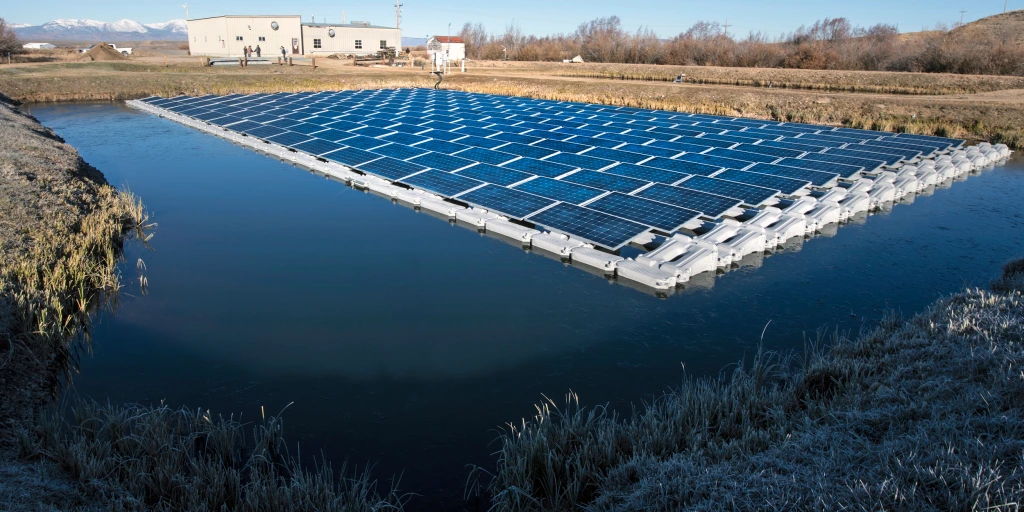By: Jason Shen
There is a new way of generating energy, and it is a lot faster than solar panels. This new idea is about putting solar panels on bodies of water. Although this method is way faster, it does cost more than normal solar panels.
Floatovoltaics are solar panels that are placed on a body of water that could provide a huge amount of electricity if they were placed on lakes and other bodies of water around the world. Floating solar panels could also help save water and protect land.
The idea isn’t as unusual as it might seem. After all, any solar panel has to be waterproof, since it will be out in the rain. There are already several large floatovoltaic farms in Southern Asia.
On land, solar panels are placed on roofs or held up by a frame. On water, these solar panels are attached to a raft or a floating platform connected to the bottom of the lake. The raft has the space to hold workers that are repairing the panels, if necessary.
The researchers behind this new idea looked at 114,555 reservoirs worldwide. They used computer programs to find out how much electricity could be produced yearly by covering 30% of these reservoirs with floating solar panels. The answer was surprisingly large – more than twice the amount of energy the United States generates in a year. And 10 times as much energy as all the solar power currently being generated in the world. One of the authors of the paper described the results as “remarkable”.
The scientists found that floatovoltaics would be especially useful when reservoirs were in smaller cities. The researchers say there are about 6,256 cities like this around the world, and floating solar panels could provide all the electricity the cities need.
Floatovoltaics can also help save water by limiting evaporation from reservoirs. Scientists say that solar panels covering just 30% of the reservoirs’ surfaces could save as much water as 300,000 people would use in a year. As areas around the world struggle with droughts, many places are eager to save water in any way they can.











